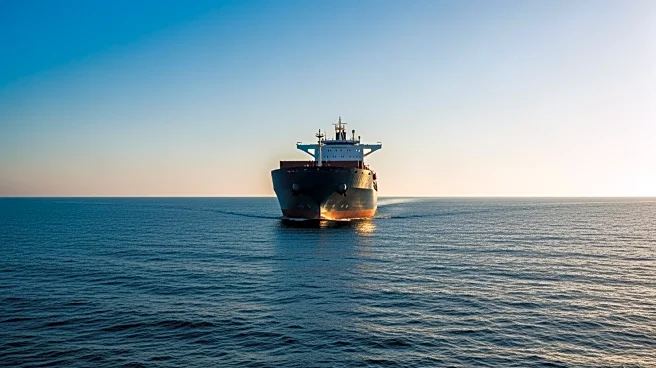What's Happening?
A new study has revealed that Filipino seafarers contribute $17 billion annually to the Philippine economy, representing a significant portion of the global maritime workforce. Conducted by the Center
for Research and Communication and the Association of Licensed Manning Agencies, the study highlights the economic impact of remittances, which amounted to $5.6 billion in 2024, supporting local communities and stimulating business growth. The seafaring industry supports nearly 400,000 jobs and contributes about four percent to the country's GDP. The study emphasizes the importance of maintaining global confidence in Filipino seafarers to sustain this economic contribution.
Why It's Important?
The findings underscore the critical role of the seafaring industry in the Philippines' economy, highlighting its contribution to foreign reserves and household income. As a leading provider of maritime labor, the Philippines must ensure the sustainability of this sector to prevent potential loss of confidence from global shipowners, which could have severe economic repercussions. The study calls for improved maritime training and adherence to international standards to maintain the country's competitive edge in the global shipping industry.
What's Next?
The study's authors urge Philippine authorities to address training and policy issues to prevent potential bans from international bodies, such as the European Commission, which has previously raised concerns about maritime safety standards. The government may need to implement reforms to enhance training programs and ensure compliance with global standards. Additionally, diplomatic efforts may be necessary to address recent U.S. immigration policies affecting Filipino seafarers.









